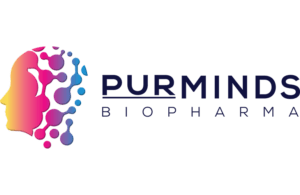 PurMinds believes psychedelics hold promise for neurological conditions
PurMinds believes psychedelics hold promise for neurological conditions
Interest in psychedelics has ratched up in recent years and a growing number of drug companies are beginning to explore their potential to treat everything from depression to neurodegeneration.
“It is a really really exciting time,” said Aron Buchman, chief strategy officer, PurMinds BioPharma, which is exploring psychedelics’ potential to treat neurological diseases.
American author Michael Pollan recently surmised in an interview with Independent that the psychedelics industry was in a “gold rush” phase. “Whether it’s going to work is another question. I think it’s going to be very challenging to fit into the system,” Pollan added.
Headquartered in North York, Ontario, PurMinds is based in a country that is warming up to the therapeutic potential of psychedelics. The Canadian government has granted a number of patients a federal dispensation covering the therapeutic use of psychedelics.
Canada was also “at the forefront of the whole cannabis initiative,” Buchman said. Canada legalized cannabis in 2018, initiating a transition from a deregulated environment concerning the plant to a regulated one.
There are lessons to draw from that transition, Buchman said, but adds that “psychedelics is a completely different field.”
Compared with cannabis, psychedelics arguably up the stakes in terms of their potential therapeutic potential and pitfalls. In the positive column, they promise to treat disorders ranging from addiction to chronic pain to PTSD and depression. But a laissez-faire approach to psychedelic regulation comes with toxicity risks. Excessive doses of psilocybin, however, can lead to proverbial “bad trips,” vomiting and even more significant problems such as seizures or coma.
Maximizing the benefits of psychedelics depends on delivering precise doses of standardized psychedelic therapies, Buchman explained. PurMinds is thus focused on standardized and uniform compounds.
When developing therapeutic psychedelics, it is vital to take “guesswork” out of the equation. “We really support stable pharma-grade compounds that are research-and-development oriented,” Buchman said.
PurMinds has decided to focus on neurological applications of psychedelics given the high unmet need in the field. “We feel that we’ll find at least a glimmer of hope in addressing neurodegenerative disorders, whether it’s Alzheimer’s or Parkinson’s,” Buchman said. “I think that neurodegeneration, over the next 50 years, is going to become a huge, huge issue.”